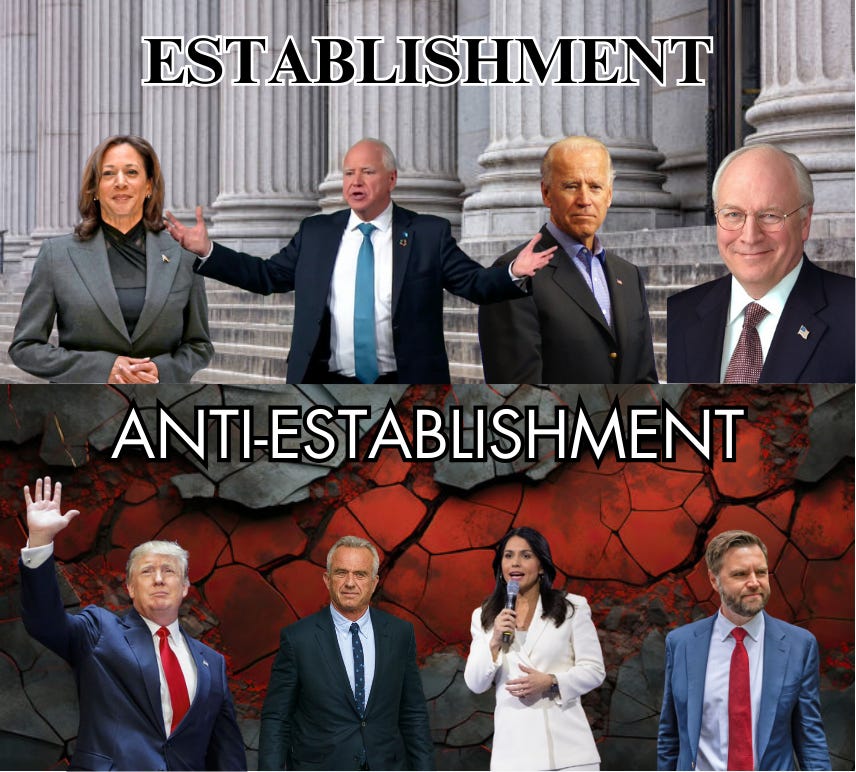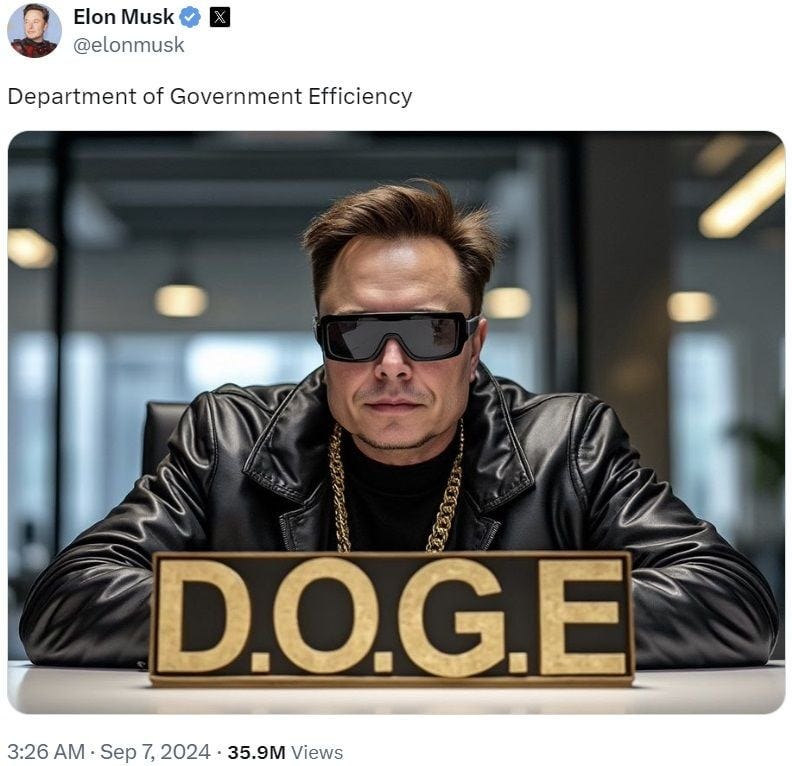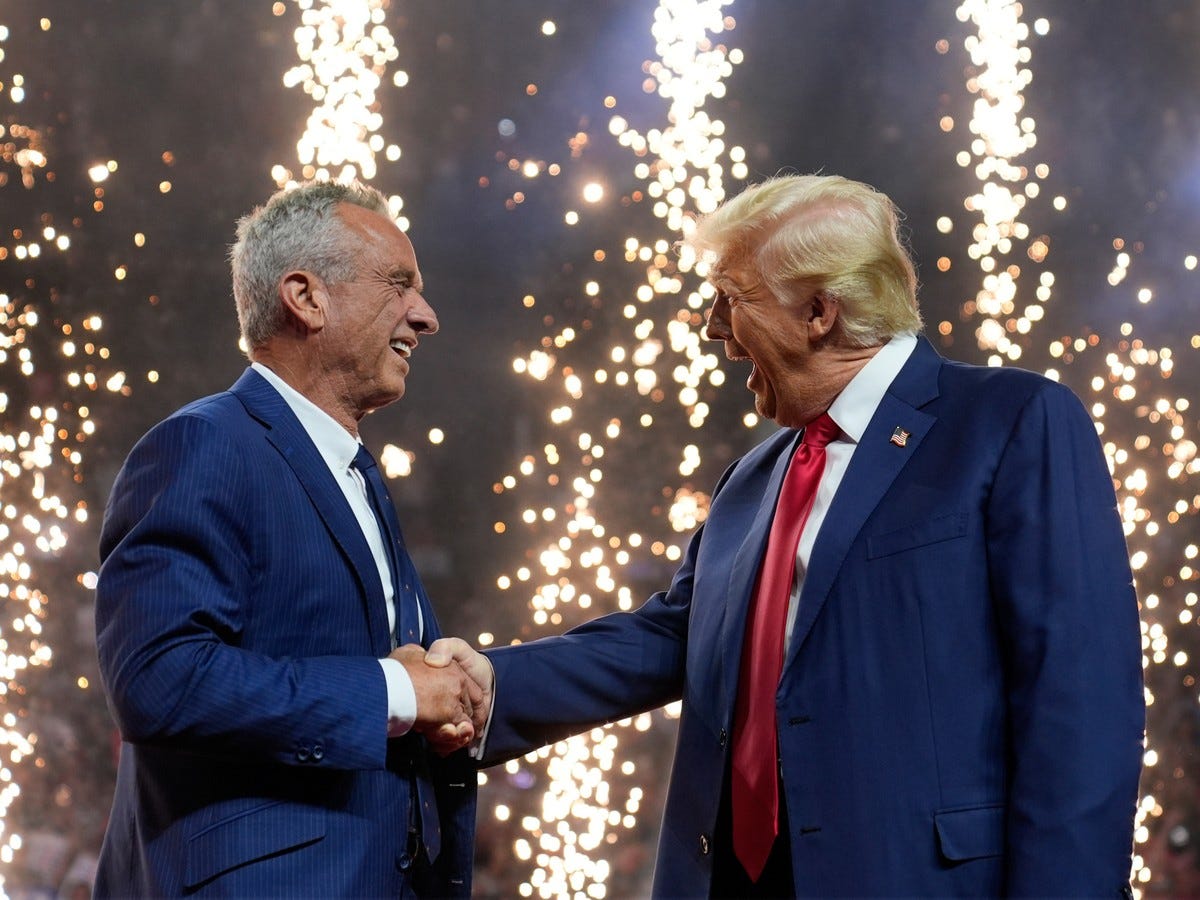Welcome to Wonderings & Wanderings by Will Reynoir. If you want to get these wonderings from this struggling blogger straight to your inbox, subscribe for free and join the 53 other people following along!
Hey everyone! Long time no see. I hope y’all have had a great last month or two since my last blog where I said I was taking a quick break. I’ve been up to a good amount of stuff since then, many of which have been around my favorite sport: football. I’ve already experienced a roller coaster of emotions with my New Orleans Saints who started the season looking like potential Super Bowl contenders to losing five straight games including one where we honored one of my idols and were playing against our former Hall of Fame coach at the Superdome on prime time (everything is fine…haha!).
While I did note I was going to stop blogging as I tried working on a fully-fledged book (which is much harder than I anticipated, but I’m working on it), I did say there was a chance I’d write a blog about the upcoming election. Well…now that we’re around two weeks away, I figured now would be the perfect time to put pen to paper (or fingers to keys rather) and hopefully provide a nuanced take on this upcoming election season.
Now, I know that I am not quote-unquote “qualified” to write many of the blogs I have written in the past. However, politics is a field that I do have at least a little experience in having done two internships in the White House and the Senate. While I do admit that there are many aspects I absolutely despise about politics (most notably the social climbers), I can’t help but be deeply interested in it, thus pushing me to keep up with all the latest via podcasts, tweets, and even going to rallies myself. I’ve been blabbering enough, so without further ado, let’s dive in!
Side note: I admit that this blog may have some bias as I am a person with their own political beliefs, but I will try to make this as balanced as I can. So read this blog with that in mind.
The Traditional Stances of the Parties
Every US Presidential election comes with its unique characters, visions for the country, and funny, meme-worthy moments. And the 2024 election is no different. In the red corner, you have the former President and well-known media & real estate mogul Donald Trump who has become one of the most polarizing figures in American political history. In the blue corner, you have Kamala Harris, the current VP who controversially received the Democratic nomination after Joe Biden dropped out following his debate performance. Before we dive too deep into what each of these candidates represents, let’s first take a look at how the political arena has looked for the past few decades before these two fighters met in the 2024 Presidential ring (with the help of Chat GPT).
Traditionally, Democrats have championed an active government role in creating a fair society, believing that social programs and collective action uplift all Americans (most well-known is FDR’s New Deal after the Great Depression). They have advocated for expanding social safety nets, like the Affordable Care Act, to make healthcare more accessible (from the Obama admin). Democrats have emphasized environmental protection, combating climate change through funding renewable energy, and supporting regulations. Social equality has been another focus, as they promote civil rights, including LGBTQ+ rights, gender equality, and racial justice. On economic issues, Democrats have supported raising the minimum wage, unions, and addressing wealth inequality through progressive taxation. In foreign policy, Democrats have prioritized diplomacy and multilateralism, valuing alliances and institutions like the United Nations. Altogether, the Democratic platform aims to use government power to build a more just, inclusive, and sustainable society.
Over the past few decades, Republicans have stood as champions of individual liberty and a vision of America where economic freedom drives prosperity. They’ve rallied for smaller government, believing that the less Washington interferes in people's lives and businesses, the better off everyone will be (popularized by the Reagan admin). From pushing for tax cuts to cutting red tape, Republicans have presented themselves as the party that trusts Americans to make their own choices—whether that's starting a business or deciding how to spend their earnings. On social issues, the party has consistently leaned into conservative values, promoting what they see as the bedrock of American culture: family, faith, and community. Meanwhile, their stance on national defense has emphasized strength and preparedness, advocating for a well-funded military to protect American interests at home and abroad (most associated with the Bush admin’s War on Terror). In essence, the Republican platform has been about trusting people, rather than institutions, to shape their own destinies.
While many aspects from the above are still relevant to this upcoming election, I believe there are a few glaring differences in terms of what Kamala Harris and Donald Trump represent that these prior descriptions don’t fully capture. I know everyone hypes up each Presidential Election saying that it is an existential election, but I have to admit that this one does feel like it because it’s not about Democrat vs. Republican but rather Establishment vs. Anti-Establishment.
Establishment vs. Anti-Establishment Election
I know you might be thinking, “Uh…I’m no political genius, but I believe I’ll still be selecting a candidate with a D or R next to their name.” Yes…that is obviously true…I’m no genius either and I know that. However, unlike previous Presidential elections, you are seeing much less alignment on party lines (particularly from high-profile individuals), a divergence in traditional party positions, and the two most unique ways we’ve seen candidates win their party nominations. Before diving into each one of those topics, however, I want to first lay out how I describe the establishment “party” and the anti-establishment “party” (using the term party loosely here, bear with me).
The establishment represents the traditional power structures that emphasize stability and continuity through institutional trust and experience. Establishment figures generally support working within established government agencies, political norms, and media to achieve gradual reforms. They advocate for global cooperation through international alliances and trade agreements, believing that multilateralism is key to addressing global challenges and maintaining U.S. influence. Their approach values experience in government and incremental change, preferring to build on existing frameworks to bring about progress. Establishment leaders often prioritize a sense of predictability and order, aiming to create policies that aren't too extreme within the current institutional framework. They see their role as stewards of existing systems, preserving and enhancing institutions that they believe serve the greater good.
In contrast, the anti-establishment movement is characterized by a deep distrust of institutions, often framing them as corrupt or out of touch with the needs of the people. Anti-establishment figures present themselves as outsiders, rejecting career politicians and traditional party leadership in favor of radical change. Anti-establishment voices often call for significant disruption, advocating for rapid changes that break away from established norms. This movement tends to focus on nationalistic and populist rhetoric, prioritizing the needs of "ordinary people" over international cooperation and elite interests, resonating particularly with those who feel left behind by the status quo. Anti-establishment advocates are willing to challenge the existing power structures directly, often using provocative language to mobilize support and draw attention to issues they feel have been ignored. They appeal to those who believe that only a complete break from the current system can address entrenched inequalities and systemic failures.
I’m sure you can guess by the graphic near the top of the blog and the previous two paragraphs which categories I believe the two camps fall into. However, I don’t want to be like all the people on Twitter who just post claims without backing them up, so I’ll provide some of the evidence that I have gathered to come to such a conclusion.
The Evidence
Work History
The first piece of evidence I want to point out concerns the candidates themselves. Instead of focusing on all the policy promises they are making for the future, their pasts tell a good amount of the establishment vs. anti-establishment story. Looking at Kamala’s previous work history, she’s been involved in public service or government for her whole career starting as a deputy district attorney in Alameda County, CA, and eventually moving to more prestigious roles as an elected official, becoming DA of San Francisco, the Attorney General of California. She then moved from the state to the federal branch with her election to the US Senate before becoming the VP under Biden. Unless you consider a debated stint at McDonald’s, she’s worked in the public sector her whole life.
Trump on the other hand is well-known for his business acumen, starting as a real estate developer before eventually becoming well known in the media space for his work with Miss Universe and the hit TV show The Apprentice. Even Kamala and Trump’s VP picks (Tim Walz and JD Vance) have a similar career track record as shown by the graphic below.

How I generally see it, the camp that’s spent most of their entire career working in the US government is the one that is probably more favorable to the establishment while the two government “outsiders” are more likely to hold ideas that go against the grain. You may disagree, but that’s where I stand on this topic.
Their Positions
Many key policy differences are separating the two candidates, many of which still follow traditional party lines. The best example is abortion where Kamala Harris supports restoring Roe vs. Wade and is very strongly in the pro-choice camp whereas Trump is closer to the traditional pro-life side of the debate (although he doesn’t support a national abortion ban). While there is some consistency among the traditional party lines, there are also some positions that have flip-flopped from one side of the aisle to the other.
The most notable of which in my opinion is the stance on war and military intervention. Kamala Harris, along with more traditional “neocon” conservatives who have thrown their support behind her (more on that next), has shown a greater willingness to engage in foreign conflicts and maintain the status quo of U.S. military power abroad. The war in Ukraine serves as a prime example—Harris has advocated for continued funding and military aid to Ukraine, echoing the establishment's belief in the U.S. responsibility to act as a global enforcer and protector of democracy. On the other hand, Trump and his coalition of political outsiders have taken a decidedly anti-war stance, emphasizing that it’s time for the United States to step back from prolonged conflicts that do not serve the interests of the American people. Trump’s position on Ukraine is one of ending U.S. involvement, seeking to prioritize domestic issues over the country’s long history of interventionist foreign policy.
One that is slightly more in line with traditional party lines (but hasn’t been in recent years as everyone has spent an insane amount of money) lies in their vision for the federal government itself. Harris' proposals largely focus on expanding or maintaining existing institutions, in line with the traditional Democratic stance on using government to address societal needs. Her policies are built around reinforcing what already exists—whether through healthcare programs, environmental regulations, or public sector expansion. In contrast, Trump has made clear that he wants to disrupt and overhaul various federal agencies, which he views as bloated, inefficient, or corrupt. For example, Trump’s proposal for a Department of Governmental Efficiency (or D.O.G.E. as Elon put it) aims to significantly cut down bureaucratic layers, with the goal of “draining the swamp” and simplifying how government operates. For Trump and his allies, the mission is not to work within the existing structures but to dismantle and rebuild them in a way that they believe serves the people, not the elites.
While Kamala has suddenly shifted further moderate on many issues including the southern border, fracking, and more, her general policy appears keen on maintaining or increasing the power of the current government establishment while Trump’s appears to seek to chip away at some of the establishment powers that are already in place. Now that we’ve talked a little bit about policy, let’s go back to talking about the people the candidates have chosen in their corner.
Their Supporters
Aside from Kamala and Trump’s VP picks that we’ve already mentioned, the people who are being included in their campaigns are also a key indicator of this being an establishment vs. anti-establishment election. The reason why is unlike most prior elections, there have been many people who have “defected” from traditional party lines and joined the “opposing” party’s campaign. When you look at who these people are specifically, it’s clear that they're following the establishment line rather than the party line.
In Kamala’s corner, she’s garnered support from both former Trump officials and well as older Bush-era Republicans (probably some who are still salty about Trump dominating Jeb Bush in the debates) who have usually been deeply engrained in the DC systems for years. These individuals include John Bolton, Jeff Flake (can already imagine Trump nicknaming him Flakey Flake) Nance Kassebaum, and more. However, the most notable D.C. name that she has not only received support from but also decided to campaign with are the infamous Dick and Liz Cheney.
Dick Cheney has been a long-serving Republican official starting back in 1969 working in the Nixon administration. He’s most well known for his time as the Vice President under George W. Bush from 2001-2009 as famously shown in the movie Vice. What’s funny is that the Cheneys’ support for Kamala is quite ironic: Dick Cheney has been one of the most hated politicians by Democrats in history due to his advocacy of war, pushing the invasion of Iraq, defending the use of torture, and his war profiteering & corruption through his ties at Halliburton. He even exited office as VP with a measly approval rating of 13% due to his influence in fueling the flames of the war on terror. Liz Cheney, his daughter, worked in the State Department during the Bush admin before being elected to the House of Representatives and has spent much of her career in support of her father’s warmongering positions. Given the Harris admin’s embrace of pro-war policies as well as the stark contrast with Trump’s anti-war stance (which is unusual for establishment Republicans), it’s clear to see why the Cheneys have chosen to side with Harris. Thus, I would argue that this partnership is due to the Cheneys choosing their side in the establish vs. anti-establishment fight rather than the usual Democrat vs. Republican one.
Unlike many former Republican presidential candidates (including himself), Trump appears to have garnered much more support from traditionally liberal demographics, including young black and Latino men. Like Kamala Harris though, Trump has also done well garnering the support of a few well-known Democrats. However, unlike the Cheneys, Trump’s big-name Democrats have been heavily vilified by their party, particularly over the last few years/months, prompting them to fight against the Democrat establishment and throw their support behind a second Trump term.
The first of these individuals is Robert F. Kennedy Jr. Kennedy comes from arguably the most famous family in American political history who are well-known Democrats (nephew of JFK and son of RFK who were both assassinated). He made waves last year when he tried running in the Democrat primaries against an incumbent Joe Biden before dropping out and opting to run as an independent after claiming the DNC was rigging the primaries against him (knowing the DNC’s history, I wouldn’t be surprised). When it became clear that his independent campaign was not going to be as successful as hoped after not making the stage for the first debate between Biden and Trump, he decided to endorse Trump. As someone whose family history is so closely tied to the Democratic party, it came as a surprise to many, looking at Trump’s anti-establishment stance, it makes sense why. RFK Jr.’s plans to shake up the FDA and USDA are aimed at breaking the stronghold of corporate influence, particularly within the pharmaceutical and agricultural sectors as shown by the recent Nonpartisan American Health Crisis Roundtable he hosted.
Trump’s next example who has some political history with Kamala Harris is Tulsi Gabbard, who was a long-time congresswoman in the US House of Representatives for one of the most liberal states, Hawaii. Her claim to fame came during the 2020 Democratic primary when she attacked Harris on her record of criminal prosecutions, effectively ending Harris’ campaign before it could even get started. After leaving office in 2021, Gabbard became increasingly critical of the Democrat party, leading to her eventual departure from the party saying that it’s “now under the complete control of an elitist cabal of warmongers driven by cowardly wokeness.” After becoming an independent, Gabbard’s allegiance shifted closer to the former “opponents” and ended up recently announcing that she would be joining the Republican party at a recent Trump rally in Detroit.
Both RFK Jr. and Tulsi Gabbard represent long-time Democrats who became increasingly critical of the Democrat Party’s establishment for many reasons. Due to this criticism, they were effectively pushed out of their party given that their positions either opposed or even threatened the party line. Thus, it makes lots of sense why both of these individuals have decided to back the anti-establishment candidate Donald Trump given their aligned views on specific topics as well as their determination to attack the current establishment that’s in control of Washington.
A Little Lagniappe
Hopefully, the following three points of evidence are enough for you to at least consider this election as an establishment-based battle versus a political-based one. If that wasn’t enough though, I’ve got a couple more tidbits to maybe convince you. The first one is quite simple: their media appearances. Since the onset of the internet, the media landscape has changed drastically with the widespread availability of information as well as the business model for legacy outlets shifting to one that incentivizes being first rather than being right. Kamala Harris’ campaign started off doing very few media appearances similar to Biden’s 2020 and 2024 strategies. However, when her campaign started opening up to more media appearances, the majority of them were with establishment media networks or shows. Some examples include ABC’s “The View”, “The Late Show with Stephen Colbert”, a cable television interview on MSNBC, and more. Trump, on the other hand, has relied much more heavily on anti-establishment media outlets, most notably podcasts. He’s appeared on over a dozen shows, including the “All in Podcast”, the “Lex Fridman Podcast”, “This Past Weekend” with Theo Von, and most notably the “Joe Rogan Experience”. While Kamala has also dipped her toes in the water with podcasts such as “Call Her Daddy”, her strategy has generally been much more establishment media-focused in comparison to Donald Trump’s.
One final example (which may be kind of a stretch, but bear with me), is how each of the candidates was nominated by their respective parties to be in this presidential race. Kamala Harris was gifted the Democratic nomination by the DNC establishment after Joe Biden “willfully” stepped down as the presidential candidate. She did this without receiving a single vote from Democrat primary voters, who may have considered other candidates had they known Harris would be the eventual nominee instead of Biden. Even if you believe Harris won votes as part of the Biden ticket, multiple states canceled their primaries and awarded all votes to Biden. Given the DNC’s history of rigging primaries (as evidenced by WikiLeaks), it should come as little shock that the establishment would select their candidate again. On the other side, Donald Trump won the GOP nomination from winning primary elections in states against other Republican candidates such as Nikki Haley, Ron DeSantis, Vivek Ramaswamy, and more. While I was not a fan of him skipping the Republican primary debates, his nomination was truly one from the votes of the people rather than the Republican establishment.
Conclusion
First and foremost, if you’ve stuck around for all 3500+ words of this blog, I salute you; you’ve been able to withstand my long-winded rambling. Second, if this blog even remotely changed the way you’re deciding to view this election, I encourage you to ask yourself where you see your values aligning. Is it with the structures that have guided the country for decades, favoring experience, stability, and incremental change? Or do you find yourself more drawn to voices calling for disruption, rapid transformation, and a break from traditional norms? The distinction between establishment and anti-establishment might matter more than the party affiliations we’re used to. However, I want to end this blog with probably the most important piece of advice regarding this upcoming election with an explanation from J.D. Vance (whether you like him or not); don’t throw away important relationships in your life over politics.
Thanks for reading everyone! Sorry for the long blog, but I’ve had a lot of pent-up thoughts I’ve been wanting to put down on paper for this election, so I just let them loose. Probably won’t be posting another blog anytime soon as I try to make some more headway working on a book. However, I appreciate the support some of y’all reading these blogs have shown. I’ve had about three people in the last two weeks tell me that they’re excited about the book, which gives me all the motivation I need to keep it going. So until then (or whenever I write another blog), I wish you well.















Have you read the papers released by Judge Chutkin? You referring to Trump's "business acumen" made me laugh! He is the only person I have ever known who bankrupted a casino! How do you even do that?